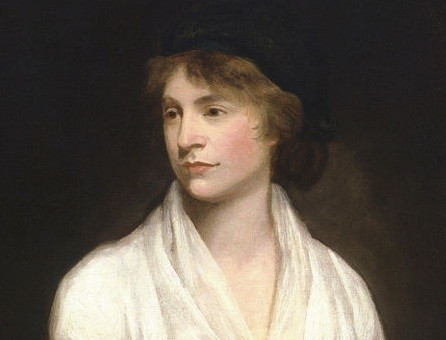Sexism Still Rife in UK: Would Blindness to Gender be Better?

Gender stereotypes and sexism are still rife in the UK, despite a survey finding most people would like to be treated as a person, rather than a man or woman.
A survey by Future Laboratory, on behalf of Confused.com, found that 94 percent of people in the UK think a person's gender should not affect how they are treated in society.
The survey was commissioned ahead of a change to European law, which will mean that from 21 December, insurance companies will no longer be able to base quotes on people's gender.
Although this law has been put in place to promote equality, gender stereotyping is still a problem and has sparked a debate on whether we should become 'gender blind'.
When asked who is better at providing for a family financially, 34 percent said men and just six percent said women - 60 percent said neither. Twenty five percent said men are better at business, compared to 9 percent of women.
On the other end of the scale, 50 percent said women are better at caring for family members, whereas just five percent said men.
It found 35 percent of women had been discriminated against because of their gender, compared to 20 percent of men. Men also still think they are better drivers, with 45 per cent saying so. Just 9 percent of men said women drivers are superior behind the wheel.
These stereotypes have no scientific basis according to neuroscientist Lise Eliot, who said the ability to drive well, run a business and read maps is nothing to do with gender. She said children's brains are the same and it is nature that creates gender identity.
"Assertions of innate sex differences in the brain are either blatantly false, cherrypicked from single studies, or extrapolated from research into rats without being confirmed in people.
"There is little solid evidence in human studies of sex differences in children's brains. The idea that girl's brains are wired for communication and boys' for aggression is simply a fallacy.
"We still live in a clear two-gender culture. But rather than being something we are born with, our gender identity is set by the nurturing of our parents and the pressures of our peers."
This, however, may change over future generations. The research found that the majority of people in the UK - 77 percent of women and 69 percent of men - think children should be raised in the same way, regardless of gender.
"Perhaps we are starting to send different messages to our daughters. It was telling that President Obama, in his victory speech, praised his girls as smart and strong first, and only tacked 'and beautiful' on the end," Eliot said.
However, many believe ignoring gender will cause huge problems. Gender commentator Elise Claeson said: "By attempting to pretend small boys and girls are the same at school, nursery or in the home, we confuse their sexual identities, and destroy their confidence and belief in who they are.
"By saying that everyone should be the same, we are saying it's not okay to be very feminine or masculine in our behaviour.

"I think men and women should have equal rights, but we should not try to pretend that we are the same. That can only lead to failure and confusion. I hope we will come to our senses - before it is too late."
While the debate continues, gender activist Emma Moore said the idea of gender blindness is a moot point, as companies and advertisers reinforce stereotypes to such a great extent that girls cannot escape the "avalanche of pink".
"Major companies, and the people who market and advertise for them, are dictating to us what a girl should be, how she should behave, and how she should dress, and they are doing it for only one reason: profit, profit, profit," she said.
"They make billions a year by telling girls that their journey through life should be 'Pink Disney Princess', Hannah Montana or High School Musical.
"The constant message is 'spend half your life in front of a mirror making yourself look pretty, or you'll never get a husband and you'll be ruined'. Thirty years ago, all little babies, boys and girls, were dressed in white smocks that looked like dresses. Now you find girl toddlers in pink T-shirts with 'Too Pretty to Do Maths' on the front.
"We are letting big companies limit the choices of our little girls, because the pressure on them to become pink princesses at three years old is huge, and if they don't they are labelled 'tomboys', or worse.
"The Only Way Is Essex is where this path leads. To a world of fantasy femininity where having a boob job is seen as a perfectly legitimate way of becoming the princess who lands the prince."
© Copyright IBTimes 2025. All rights reserved.





















